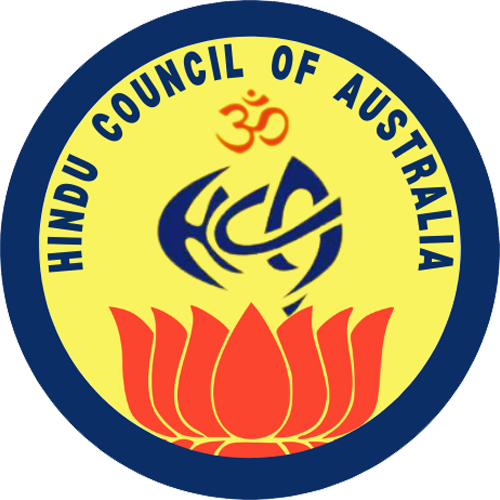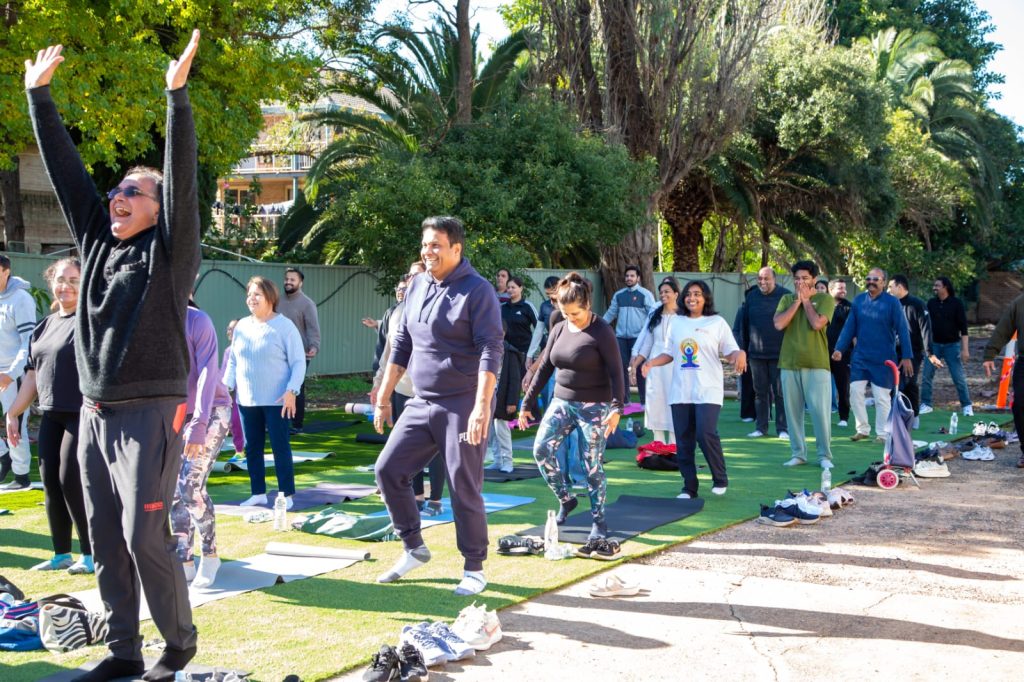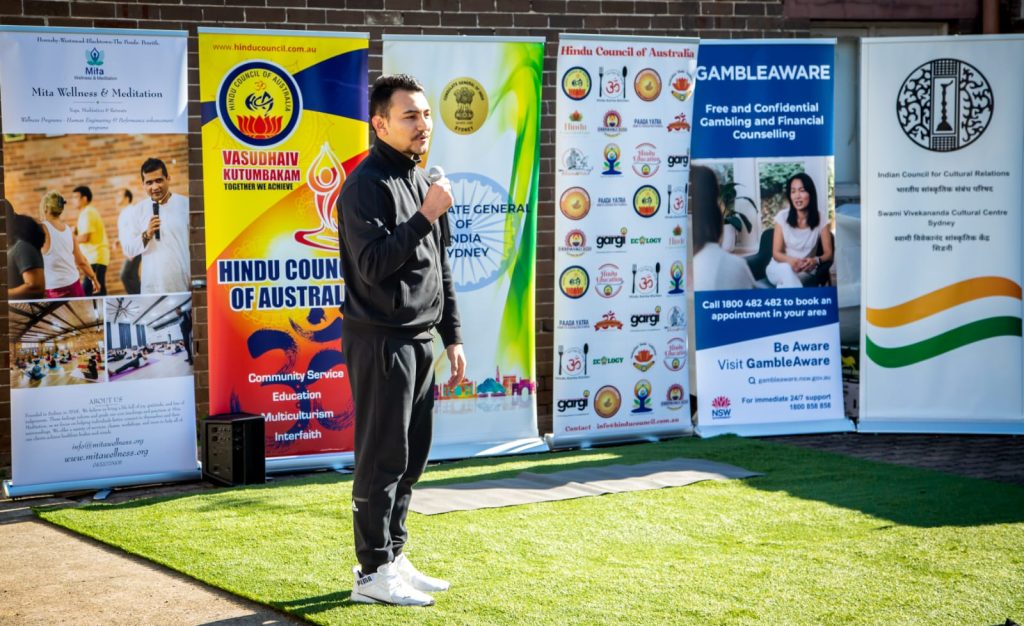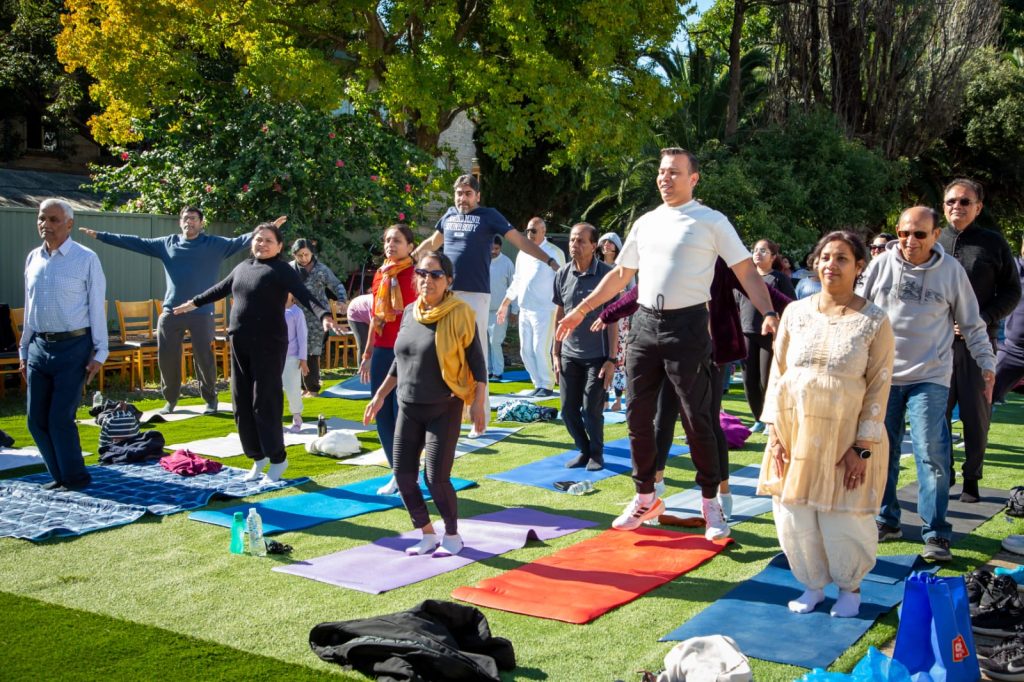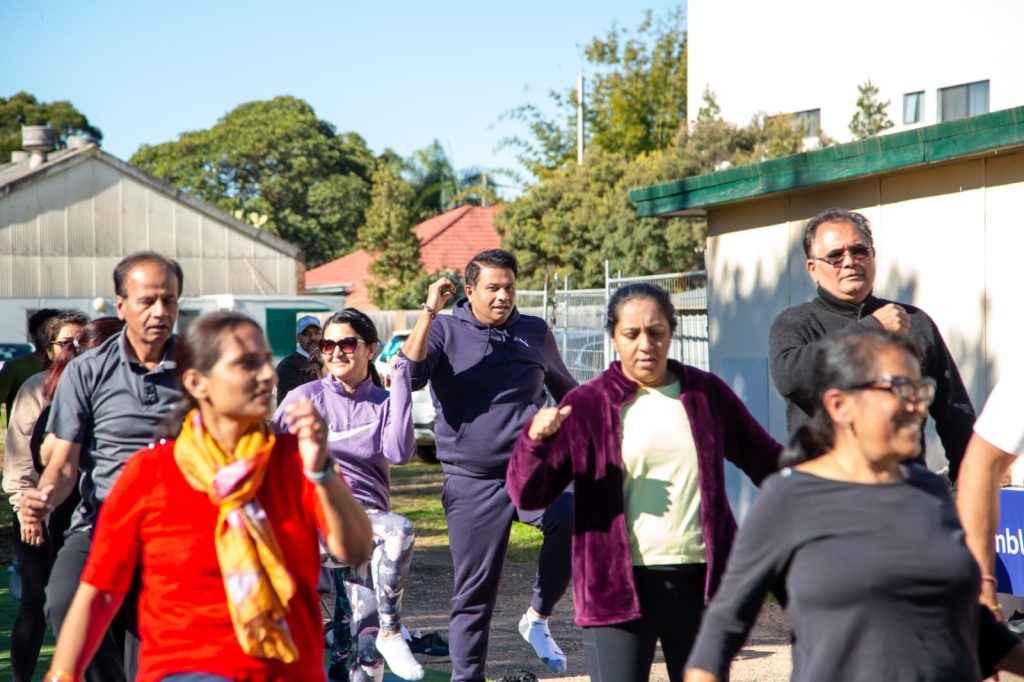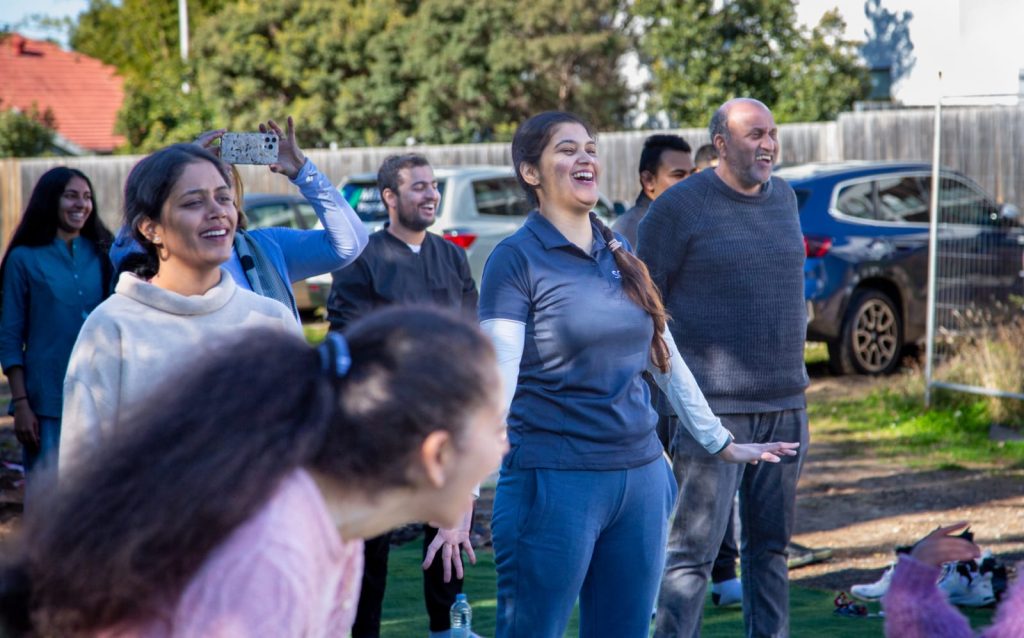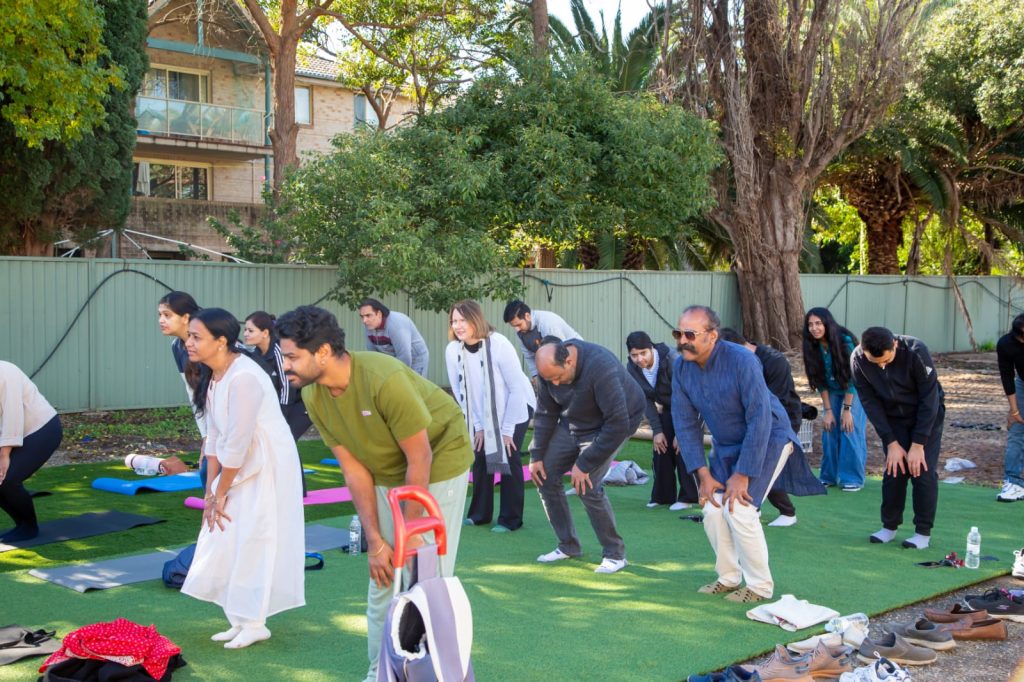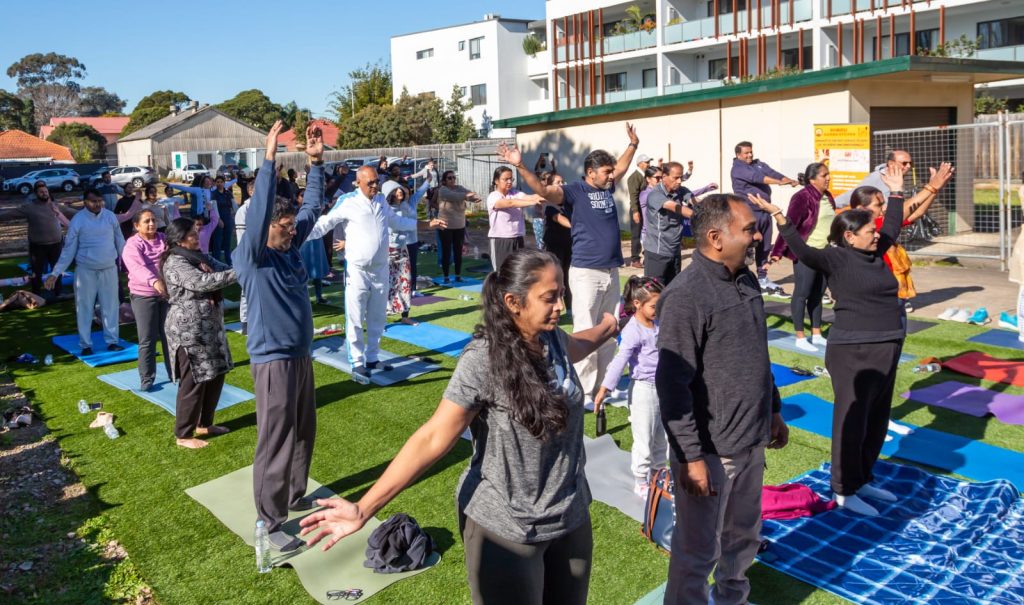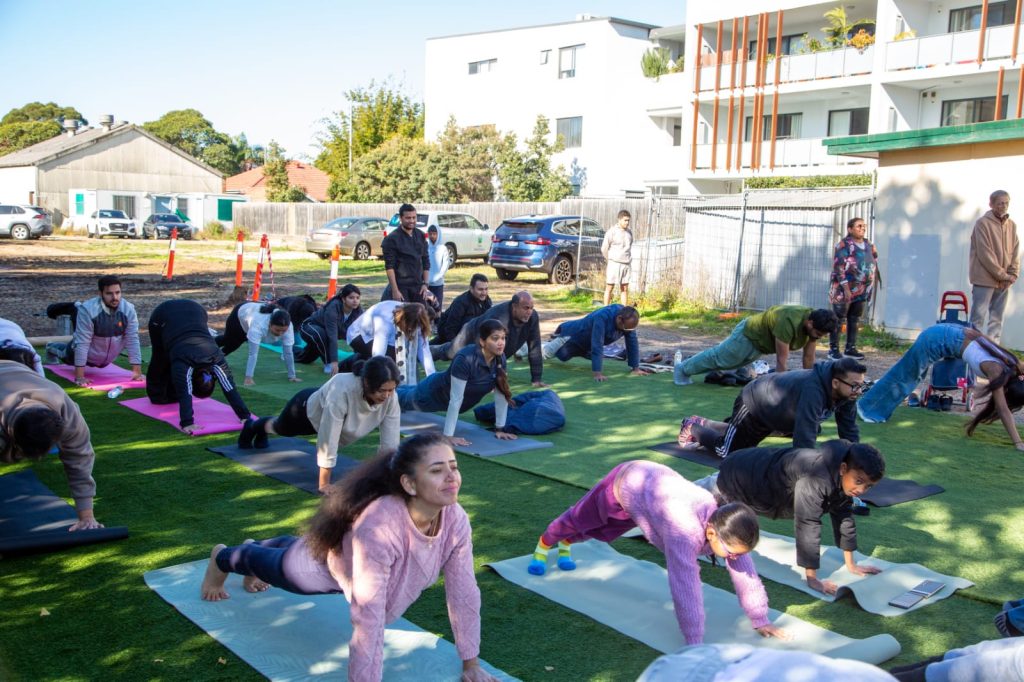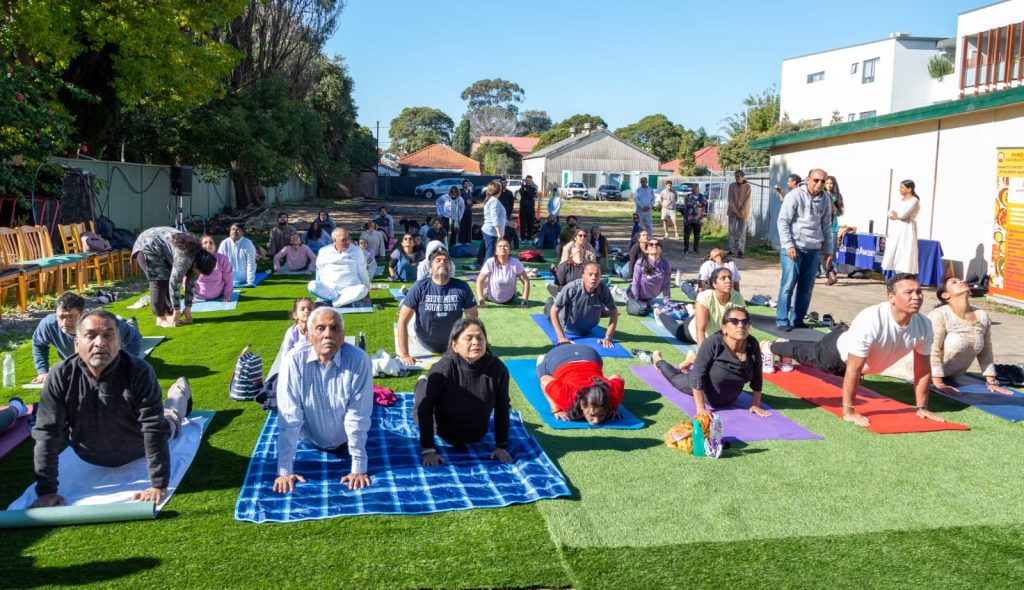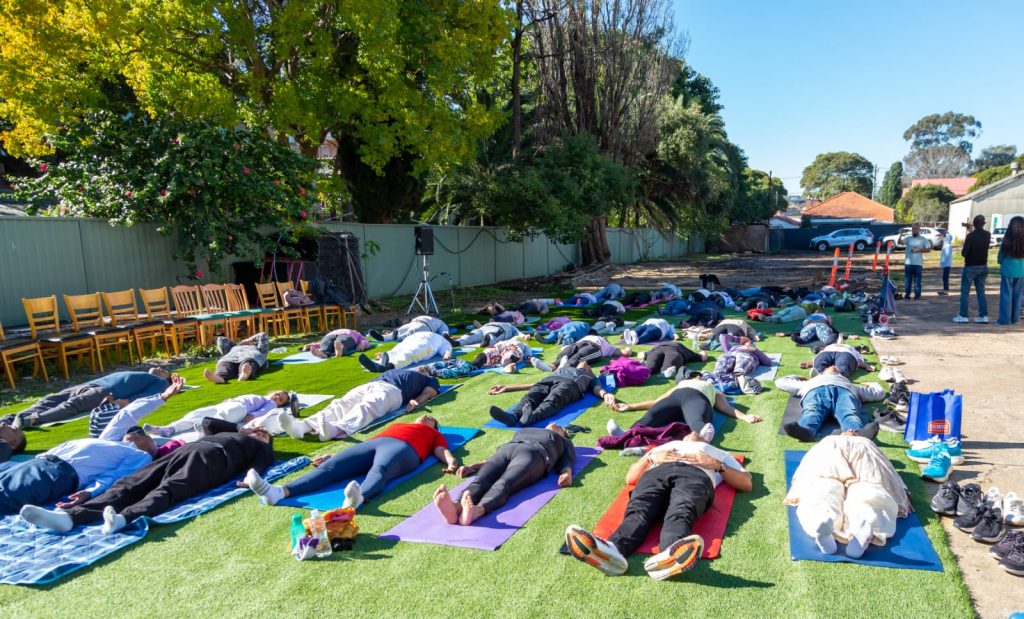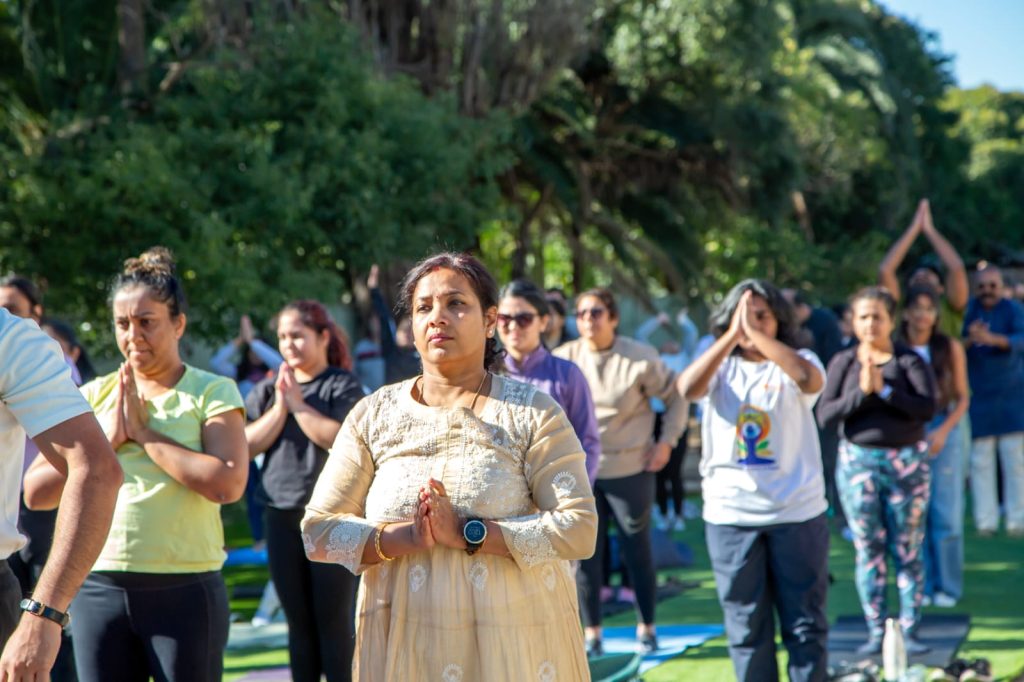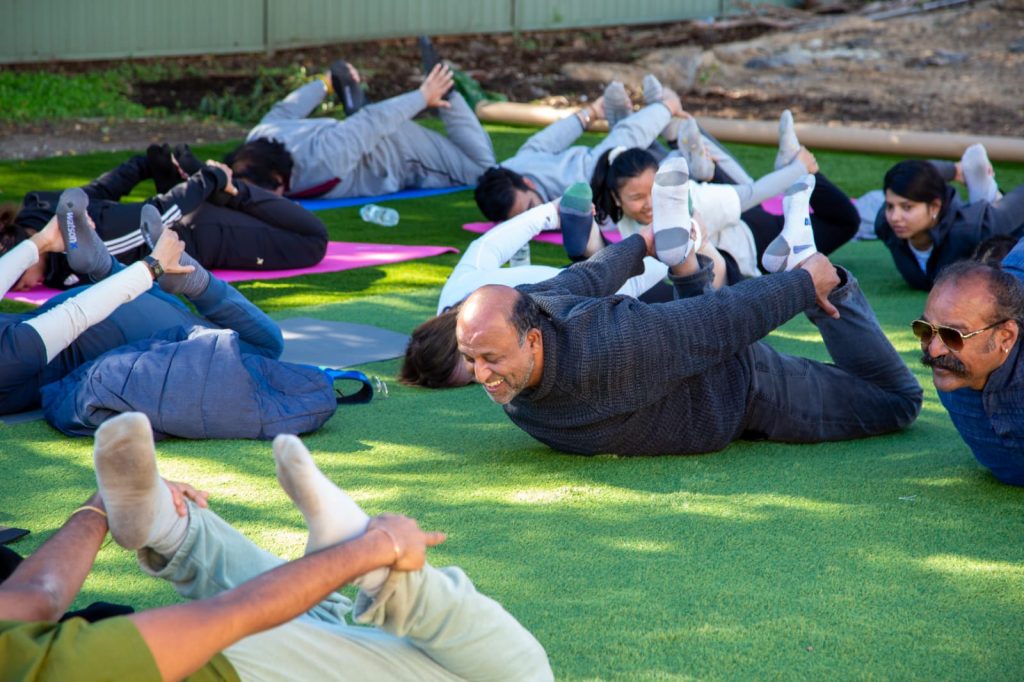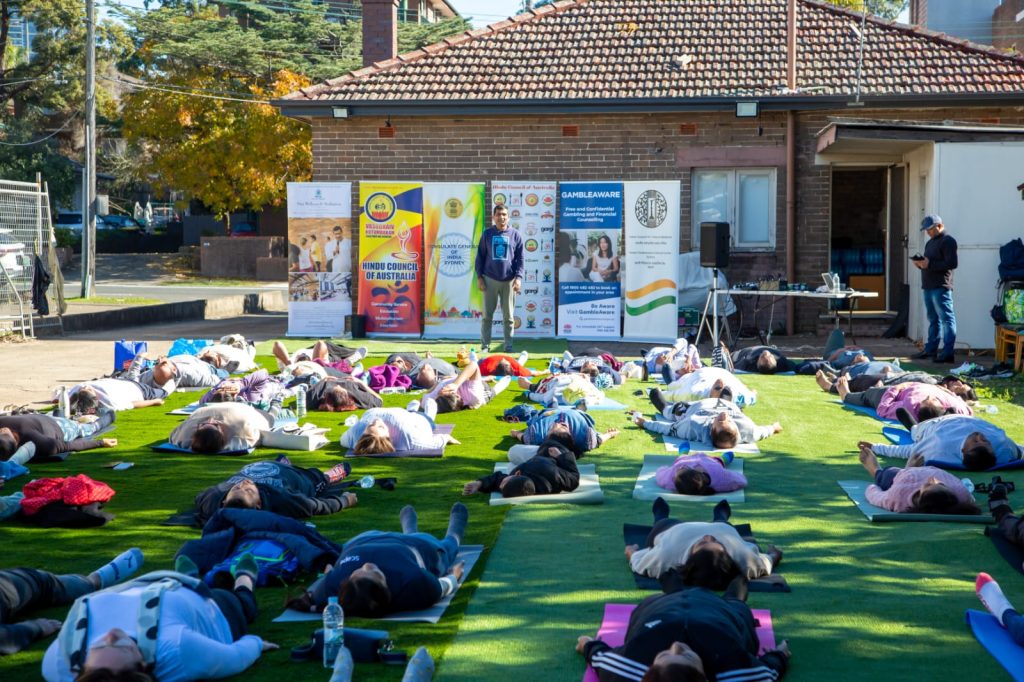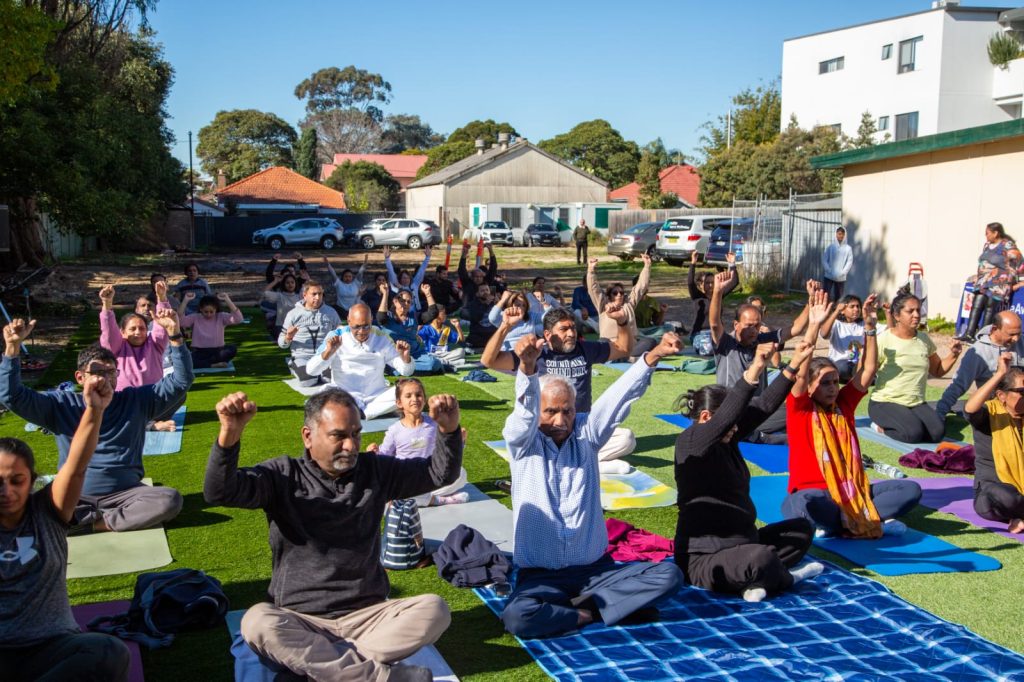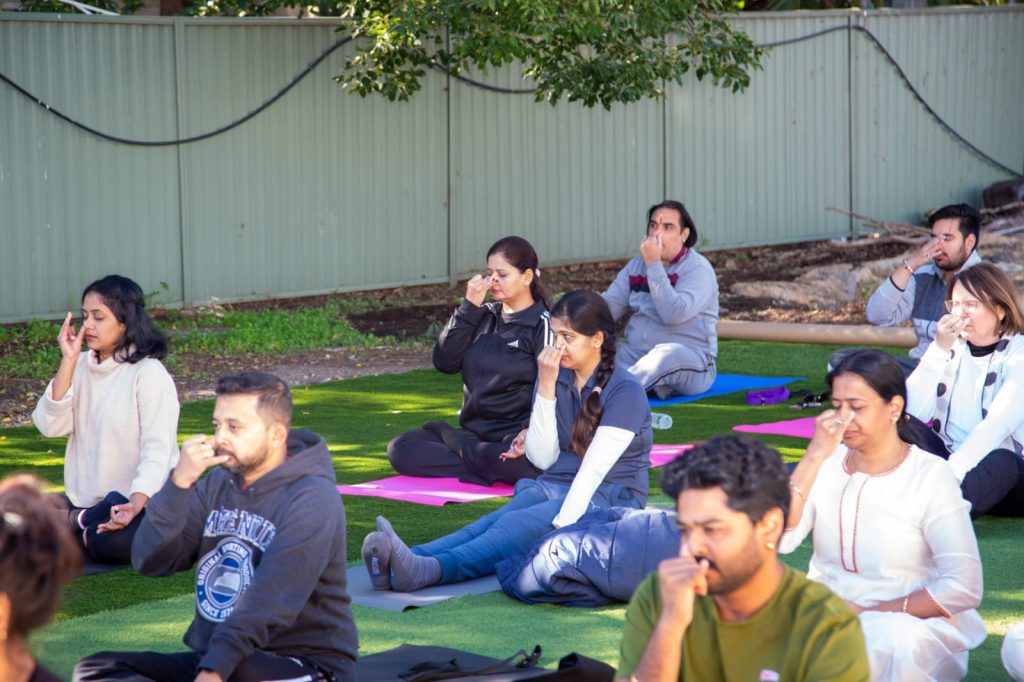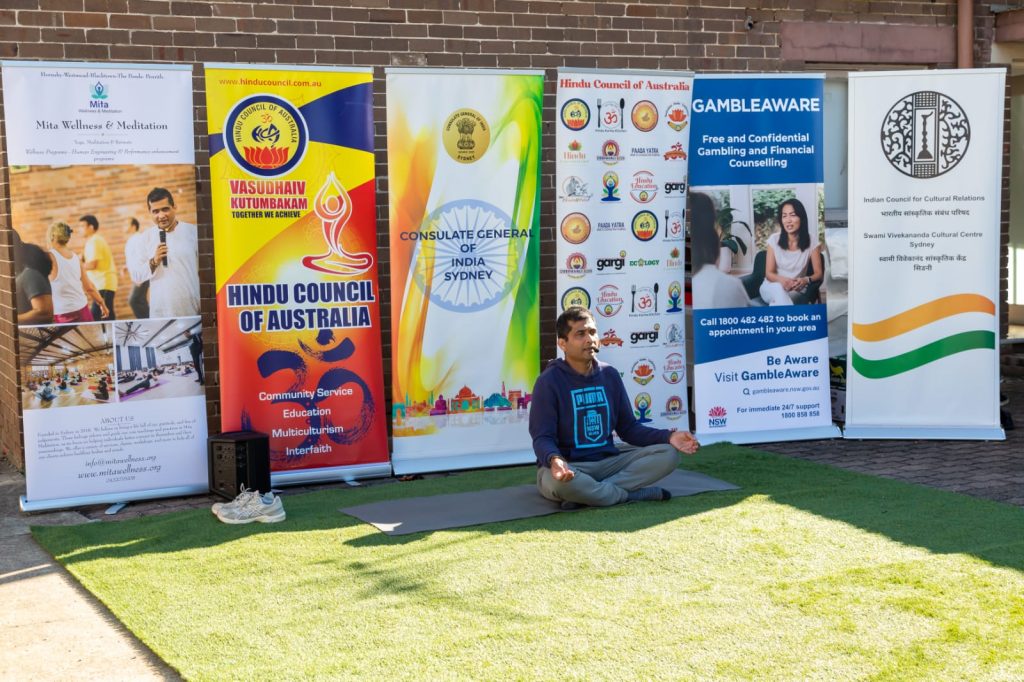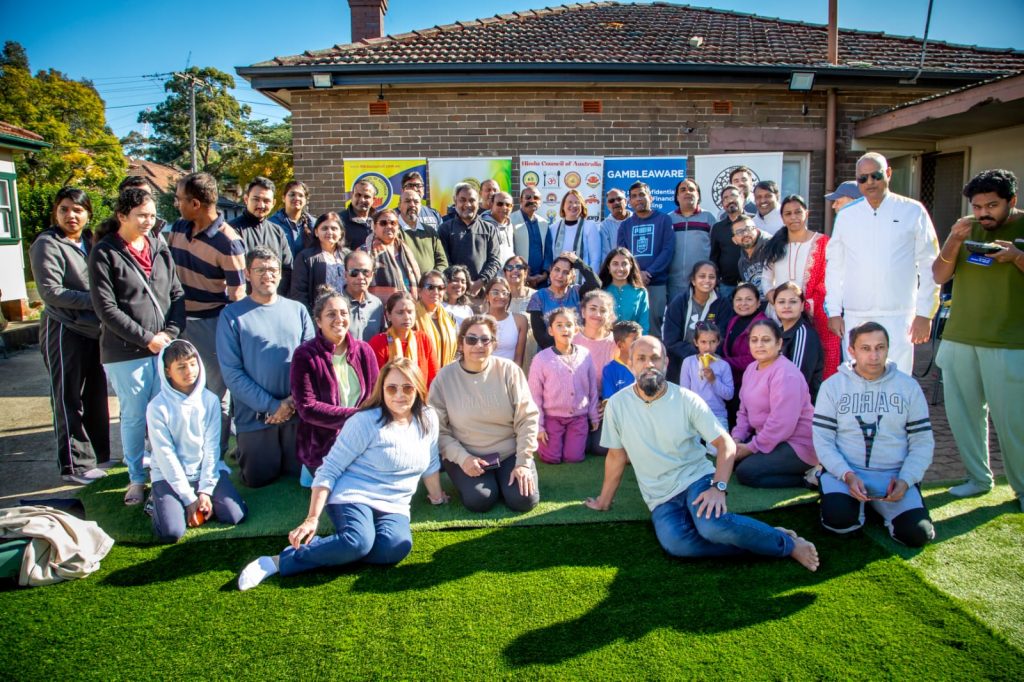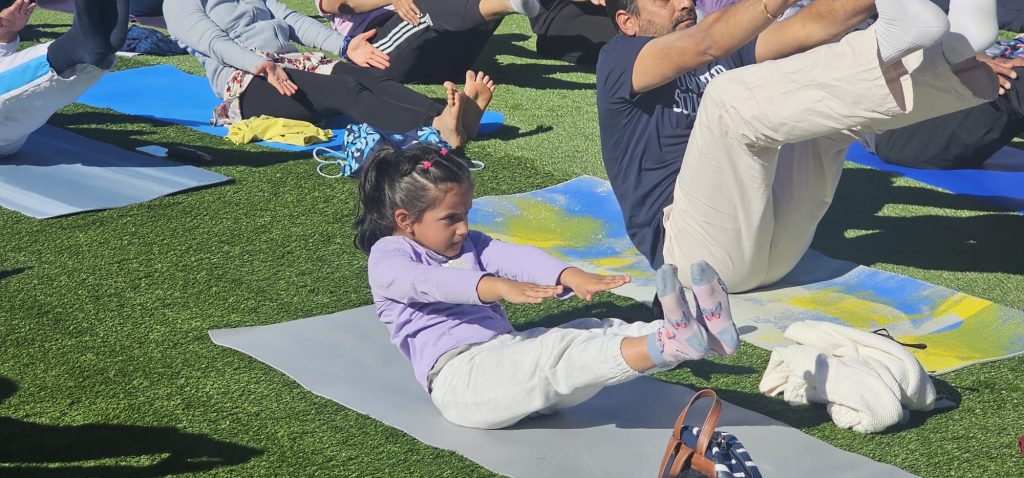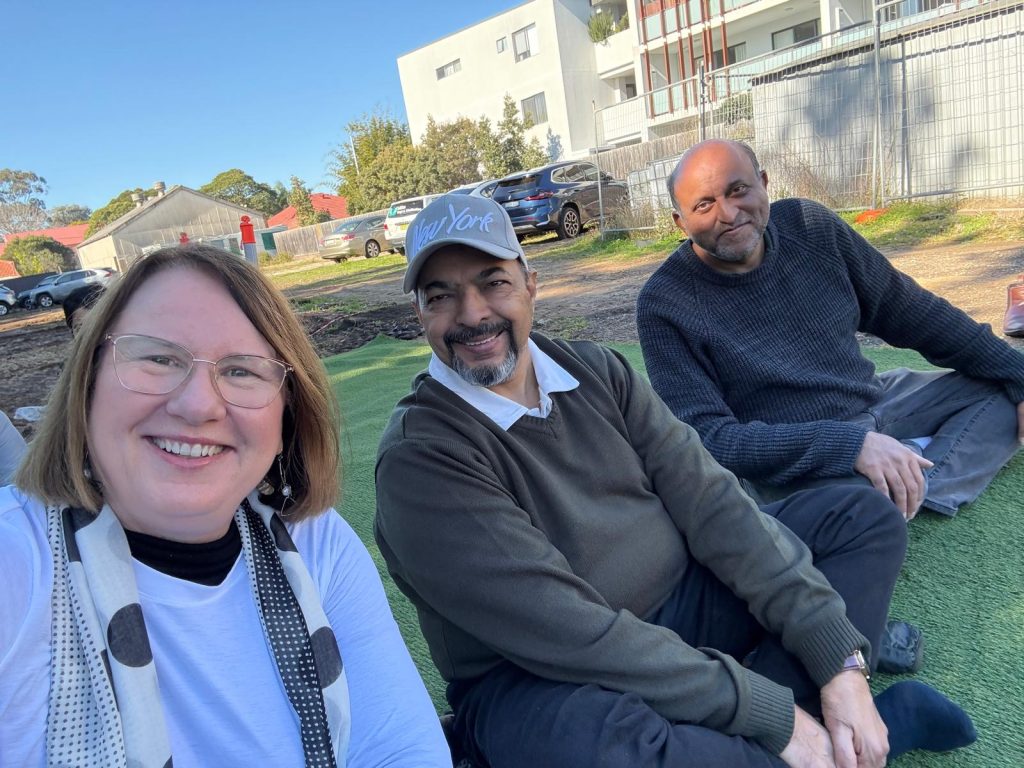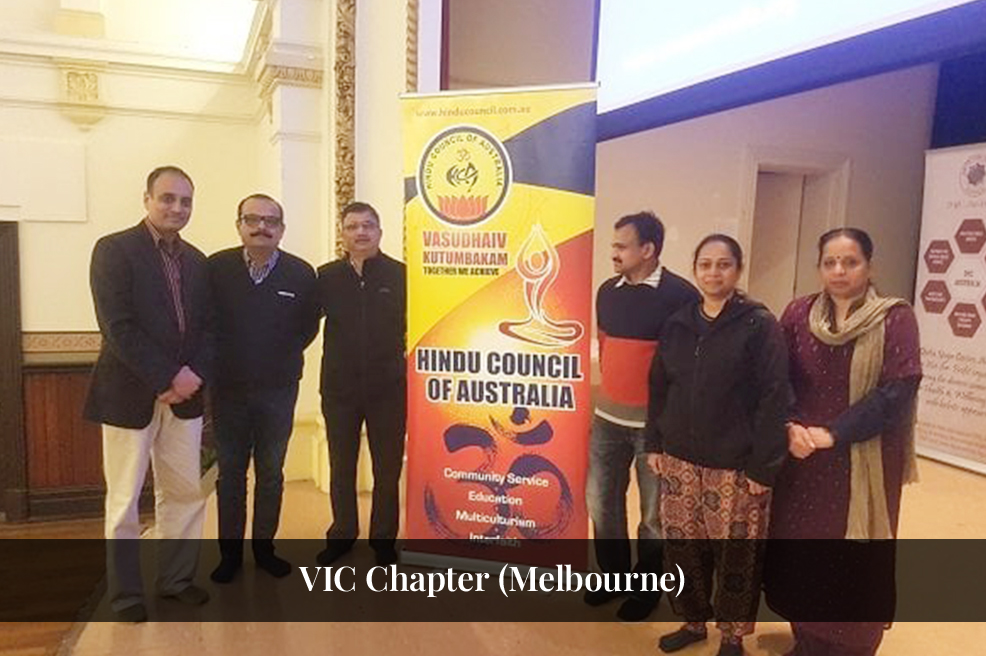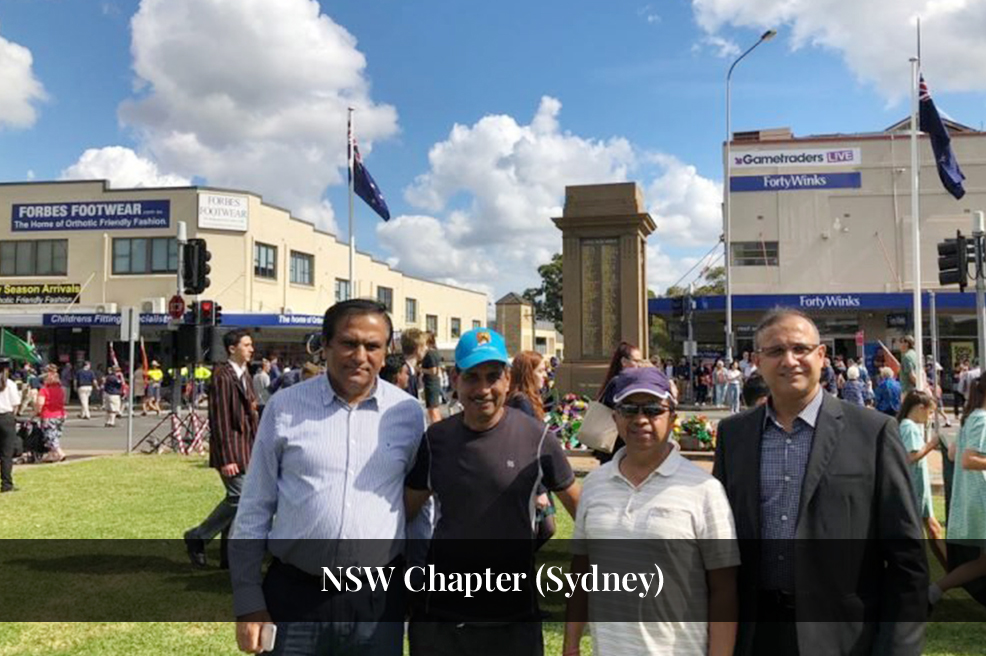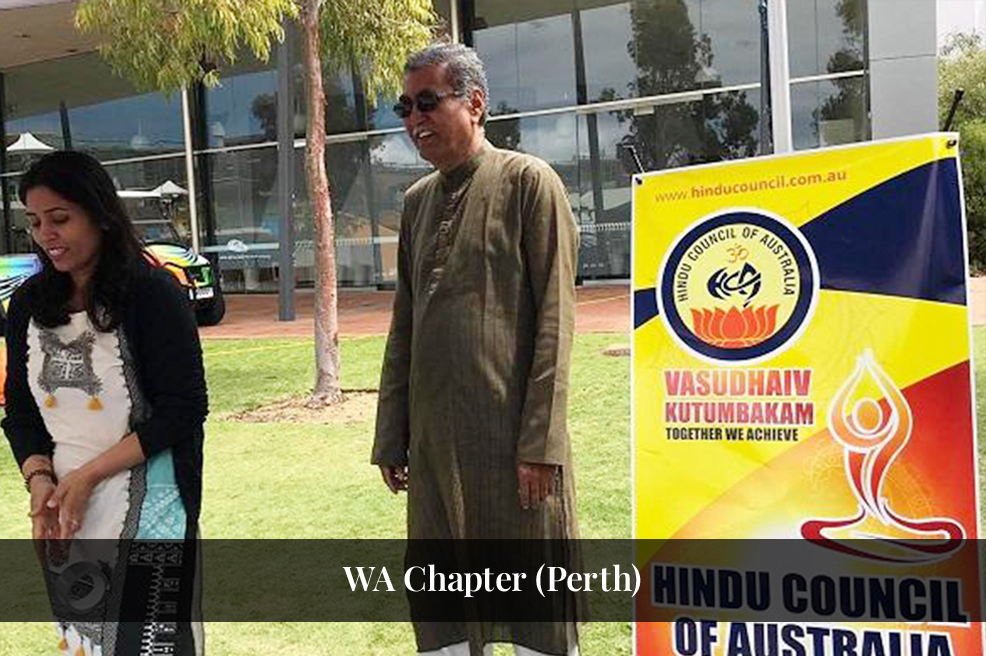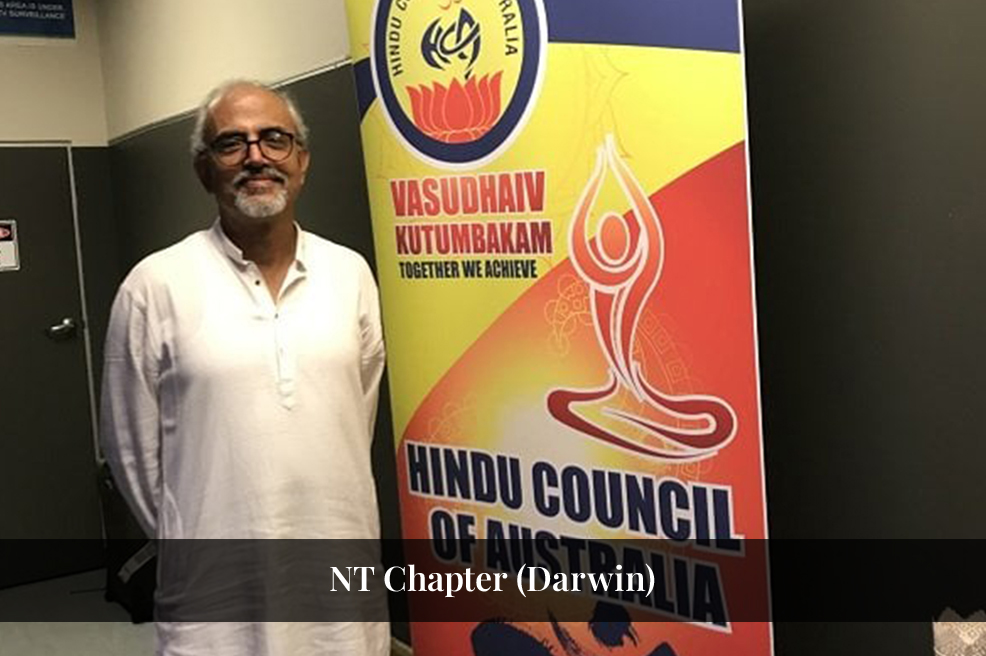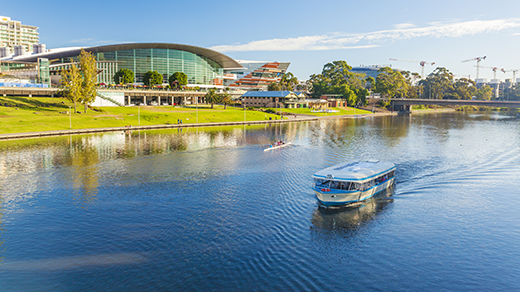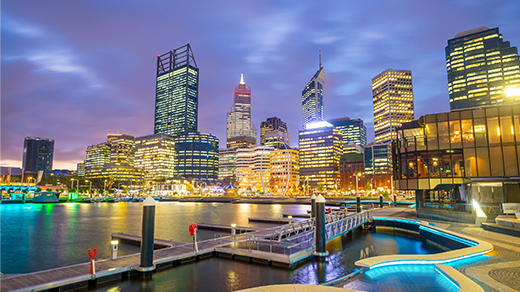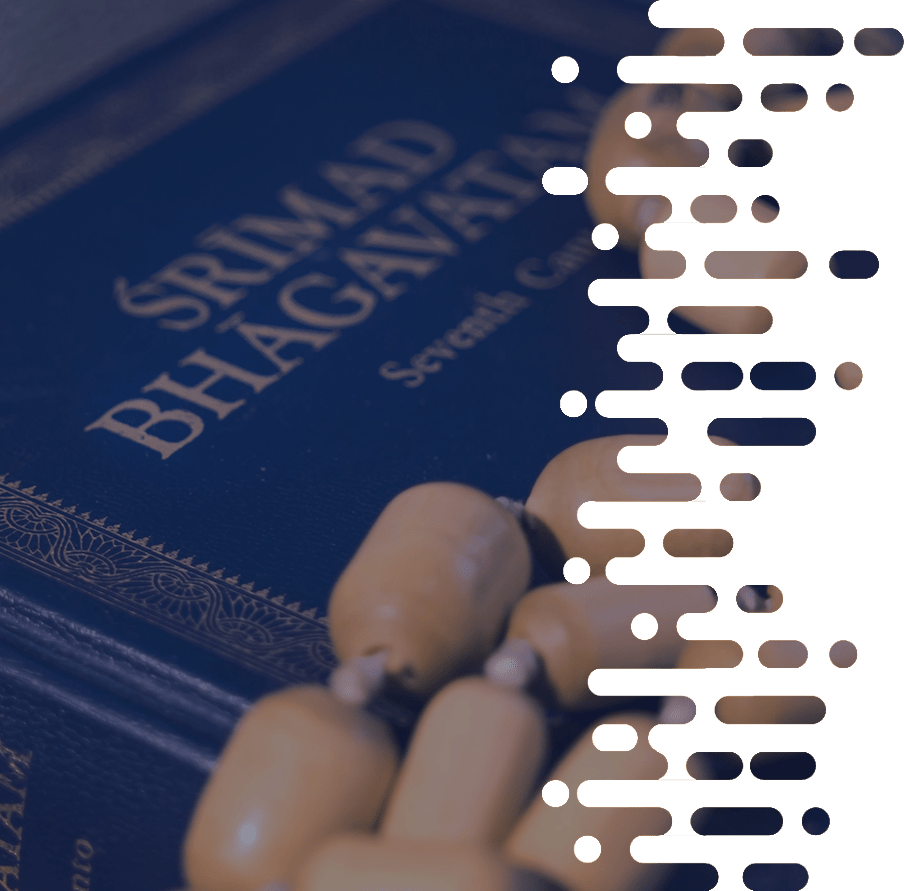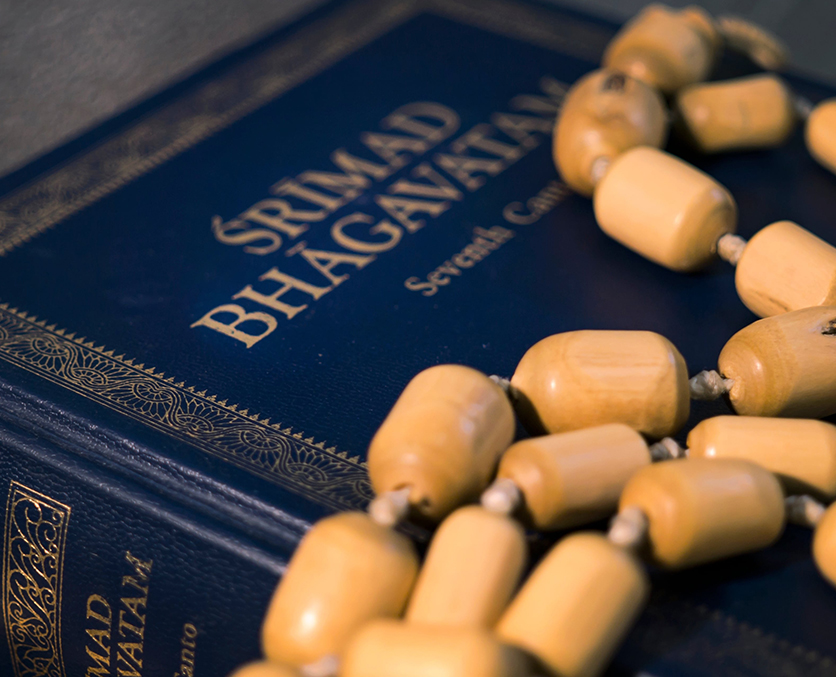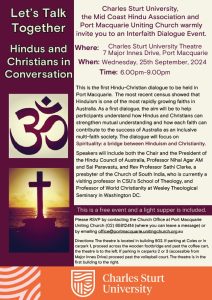 Interfaith Dialogue – Hindus and Christians in conversation
Interfaith Dialogue – Hindus and Christians in conversation
This week, Charles Sturt University (CSU) hosted its inaugural Hindu-Christian dialogue event at the Port Macquarie campus. The event focused on the shared spiritual tenets between Hindu Dharma and Christianity, aiming to build mutual understanding and respect between the two faiths.
Building Mutual Understanding
In Australia, Christians form the majority, while Hindus represent the fastest-growing community. With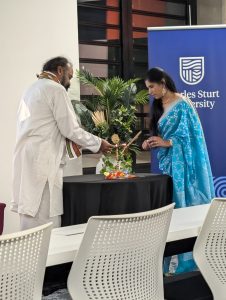 a notable presence of Hindu students on CSU’s Port Macquarie campus and a growing Hindu population on the Mid-North Coast, this dialogue sought to foster a deeper understanding of the Hindu way of life, encompassing its values, practices, and worldview. At the same time, it provided an opportunity for Hindus to gain insights into Christian beliefs and values, focusing on mutual respect and fostering inclusivity in Australia’s diverse, multi-faith society.
a notable presence of Hindu students on CSU’s Port Macquarie campus and a growing Hindu population on the Mid-North Coast, this dialogue sought to foster a deeper understanding of the Hindu way of life, encompassing its values, practices, and worldview. At the same time, it provided an opportunity for Hindus to gain insights into Christian beliefs and values, focusing on mutual respect and fostering inclusivity in Australia’s diverse, multi-faith society.
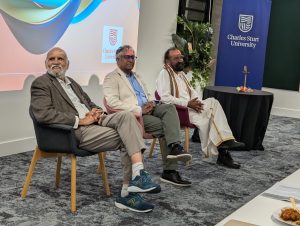 Professor Ross Chambers opened the event by explaining the purpose and value of dialogue, preparing the audience to engage with an open and constructive mindset.
Professor Ross Chambers opened the event by explaining the purpose and value of dialogue, preparing the audience to engage with an open and constructive mindset.
Kate Wood-Foye, CSU’s External Engagement Director, welcomed the attendees and acknowledged the traditional custodians of the land, emphasising the event’s significance in fostering inclusivity and cross-cultural understanding.
Amita Krautloher, Educational Designer at CSU and an instrumental figure in including the Hindu voice in the series of interfaith events at CSU, shared her passion for dialogues that build understanding and respect across diverse faith communities.
Contributions from Speakers
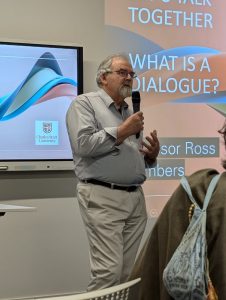 Rev. Professor Sathi Clarke from the CSU School of Theology and a minister in the Church of South India, presented a Christian theological perspective. His talk focused on shared spiritual themes between Christianity and Hindu Dharma, particularly compassion, service, and a shared vision for humanity. He likened spirituality to “honey-making bees” that bring life and transformation and highlighted the importance of building two-way interfaith bridges. Rev. Clarke drew parallels between Christian concepts of light and Hindu spiritual imagery, advocating for silence and contemplation as essential practices for fostering spiritual connection across religions.
Rev. Professor Sathi Clarke from the CSU School of Theology and a minister in the Church of South India, presented a Christian theological perspective. His talk focused on shared spiritual themes between Christianity and Hindu Dharma, particularly compassion, service, and a shared vision for humanity. He likened spirituality to “honey-making bees” that bring life and transformation and highlighted the importance of building two-way interfaith bridges. Rev. Clarke drew parallels between Christian concepts of light and Hindu spiritual imagery, advocating for silence and contemplation as essential practices for fostering spiritual connection across religions.
Sai Paravastu, President of the Hindu Council of Australia, presented practical and philosophical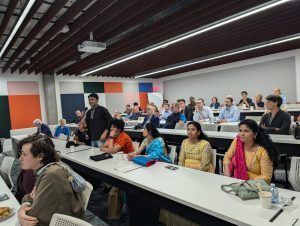 approaches to fostering interfaith understanding. He explained that Hindu Dharma is a holistic way of life, encompassing spirituality, ethics, and practical living. He elaborated on key Hindu principles such as Dharma (righteous duty), Karma (the law of cause and effect), Ahimsa (non-violence), and Vasudhaiva Kutumbakam (the belief that the world is one family). Sai also emphasised Hindu reverence for nature, seen in the worship of the Pancha Bhootas (Earth, Water, Fire, Air, and Ether), and the importance of respecting all life forms, offering a deeper insight into how Hindus view spirituality and their connection to the universe.
approaches to fostering interfaith understanding. He explained that Hindu Dharma is a holistic way of life, encompassing spirituality, ethics, and practical living. He elaborated on key Hindu principles such as Dharma (righteous duty), Karma (the law of cause and effect), Ahimsa (non-violence), and Vasudhaiva Kutumbakam (the belief that the world is one family). Sai also emphasised Hindu reverence for nature, seen in the worship of the Pancha Bhootas (Earth, Water, Fire, Air, and Ether), and the importance of respecting all life forms, offering a deeper insight into how Hindus view spirituality and their connection to the universe.
Professor Nihal Agar, Chair of the Hindu Council of Australia, reflected on the shared spiritual values between Hindu Dharma and Christianity, highlighting the common ground the two faiths share despite their differences. He reinforced the idea that both traditions offer profound insights into the nature of divinity and human existence, aligning with universal value
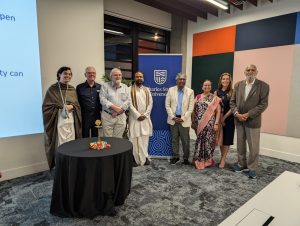
s that transcend religious boundaries.
Future Collaborations
The event’s success has paved the way for ongoing interfaith dialogue, with plans for future discussions,
workshops, and collaborative social initiatives to further unite communities. Spirituality was underscored as a powerful tool for bridging cultural and religious divides. The local community, with their active support and contributions, was instrumental in shaping the dialogue and showed a strong commitment to continuing what has been started. Future interfaith events will further strengthen bonds between the Hindu and Christian communities, fostering an inclusive and harmonious society through joint celebrations and continued dialogue.
